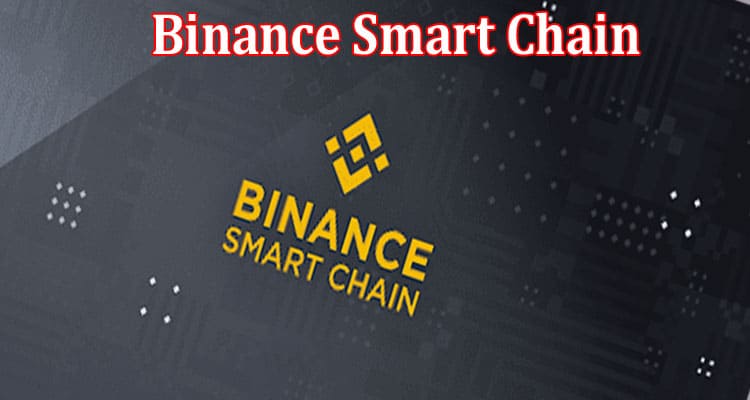Binance Smart Chain Average Transaction Fee
Fees are important to the crypto economy because many enterprises rely on them. Wallets, exchanges, and payment services depend on user fees. For reasons, blockchain transaction fees are significant. Miners and validators are rewarded for verifying transactions and securing the network by preventing spam attacks.
Depending on the network volume, transaction fees may be low or high. Market conditions can change fees. Extremely low fees may pose security risks, whereas high fees may inhibit blockchain adoption.
Fees are essential to the functioning of the crypto economy. Users are harmed by excessive fees, which delay widespread adoption. Cryptocurrency networks and service providers that prioritize user experience and low fees are available. Binance Smart Chain is an example. This article discusses Binance Smart Chain’s transaction fees
In a nutshell, what does Binance Chain (BC) entail?
The Binance exchange launched the Binance Chain in April 2019 to offer decentralized and speedy trading. For productivity, Binance Chain and DEX were released simultaneously.
Binance hoped the Binance chain would improve on competing for decentralized exchanges’ poor service. Below are some of Binance Chain’s other services.
- Binance is a cryptocurrency exchange that features the BNB which is among the most wanted coins in the market. If you are looking to buy some BNB, better watch out for this BNB not available error.
- Burning/minting/unlocking/locking/unfreezing/freezing tokens control their supply.
Binance Smart Chain: What Is It?
The cryptocurrency exchange Binance introduced Binance Smart Chain. Due to its feature-complete architecture, fast block times, high throughput, and low transaction fees, BSC has quickly become the top Ethereum alternative.
Despite sharing the same name, Binance Chain and Binance Smart Chain and are two distinct blockchain platforms. BC, the first chain on the exchange, is very scalable but does not support smart contracts. The Binance DEX and other apps can therefore function on it.
BSC compromises decentralization for throughput and scalability since consensus requires few validators.
Fees for transactions on BNB Smart Chain
BNB Beacon Chain and BNB Smart Chain (BSC) function together. Because of smart contracts, the BNB Smart Chain can be altered to suit individual needs. Fees associated with using BSC are not fixed like those associated with using BNB Beacon Chain. Instead, gas systems (like Ethereum’s) reflect the processing power required for smart contract activities and transactions.
PoSA (Proof of Staked Authority) is used in BSC. In order to validate blocks and earn transaction fees, validators must stake BNB.
For more detail, the average transaction fee on Binance’s Smart Chain is currently 0.1728, up from 0.1717 yesterday and 0.4429 a year ago, equivalent to 0.64% from yesterday and -60.98% from a year ago.
What factors into the fees of a transaction on the BNB Smart Chain?
The fee structure of BSC is similar to that of Ethereum. The charge for completing a transaction is 1 Gwei or 0.000000001 BNB. Priority blocks can be set up with gas pricing. In BscScan, you may view the daily median, highest and lowest gas prices. In December of 2021, BSC averaged 6 Gwei.
Although the BSC transaction fee is low, the platform will alert you that you do not have enough BNB to send the tokens. So please maintain a small quantity of BNB to cover inevitable transaction fees.
Reduced Gas Fees
Comparatively, the transaction fee for Ethereum is 40 Gwei, while it is only 5 Gwei for BSC. If you’re developing a decentralized application, BSC is 8 times more cost-effective than Ethereum.
Speed and low fees have given Binance’s Smart Chain the edge
The primary motivation behind this blockchain is to provide a faster and cheaper alternative to Ethereum’s blockchain in the rapidly expanding DeFi market.
When compared to other smart contract platforms, Binance Smart Chain stands out for its competitive block times of 5 seconds and low transaction fees of $0.01 to $0.03.
Compared to Ethereum and Bitcoin, transaction fees of BSC are lower thanks to the consensus process it applies. To secure process transactions and the network, cryptocurrencies like Ethereum and Bitcoin employ a consensus protocol known as Proof-of-Work in which miners solve complex mathematical puzzles.
In contrast, blocks on the Binance Smart Chain are validated by 21 independent validators using PoSA. Therefore, BSC is able to handle transactions at a reduced cost and in less time.
Many DeFi protocols, some of which are considered Ethereum migrations, have emerged on BSC because of its cheap transaction fees.




